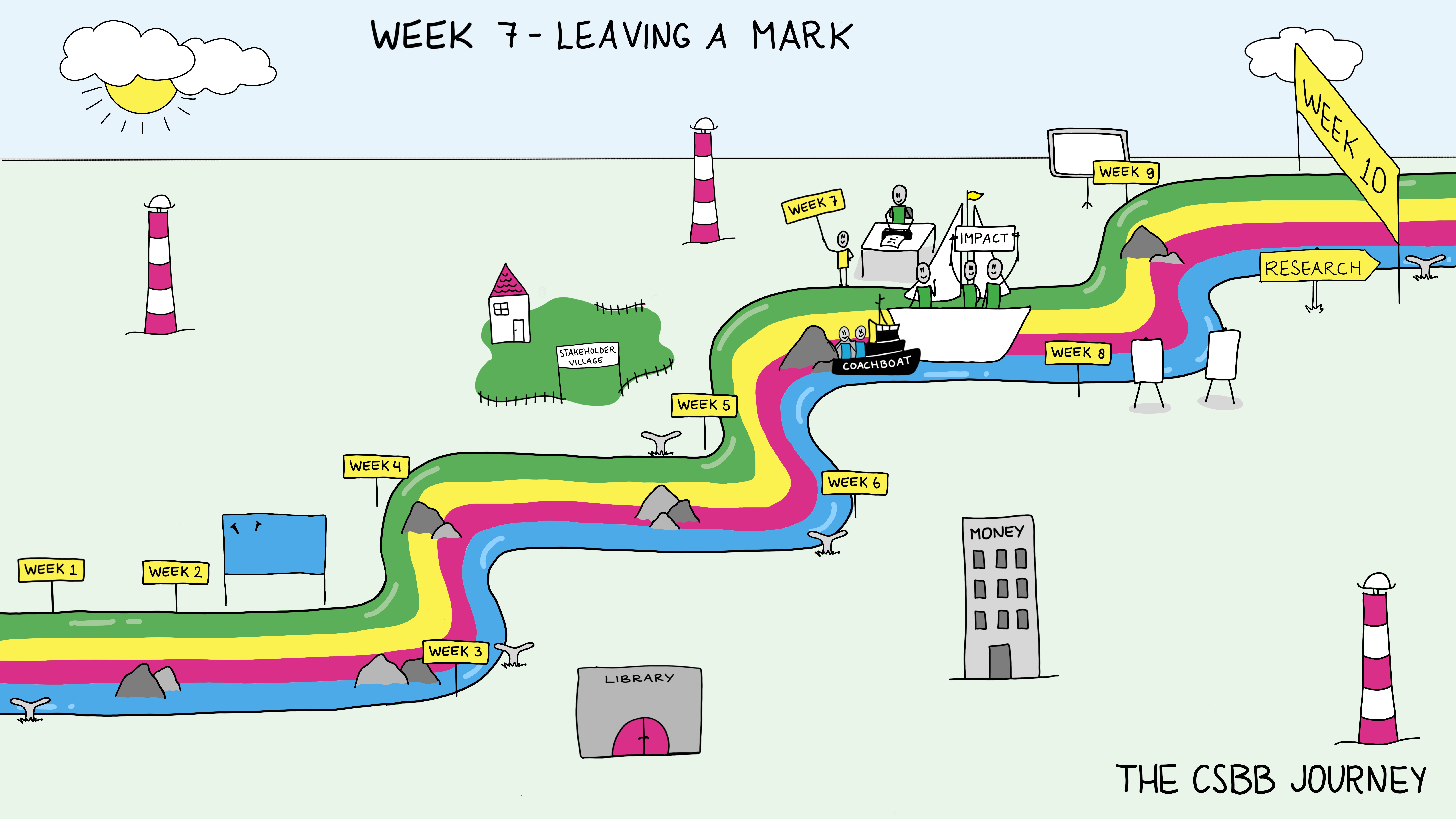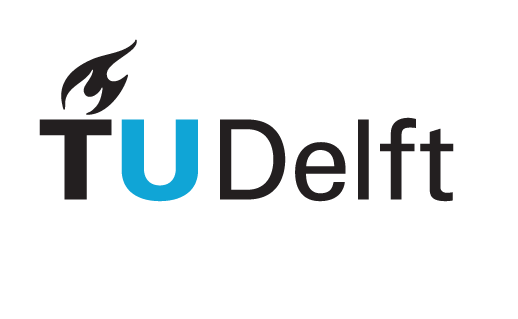
Week 1.7: Leaving a Mark#
The main topic of this week is “Impact”. As researchers, it is important to be aware of the impact of your research on different levels and in varying contexts. Further, to be successful you need to be able to explain the necessity and importance of your work to others, especially when it comes to communicating with non-experts or writing grant applications. Many grant applications require that you include a section on what the potential utilization of your results could be.
These points will be explored this week in two workshops “Knowledge Utilization” and “Grant Writing”. Knowledge utilization is about explaining how the results of your project could be used to solve societal problems or make money. We call this developing the horizon viewpoint—what could happen in the future with this research. It is important to be able to explain how your results can be used and what the applications of that knowledge might be. This includes identifying and communicating a value proposition for how your ideas will positively impact society.
The grant writing workshop will focus on the technical details of writing grants, how to read the instructions and the elements of a research grant, understanding requirements, and developing some best practices.
Monday:
Science Spotlight
Workshop: Knowledge Utilization
Wednesday:
Workshop: Grant Writing
Friday:
Symposium: Knowledge for knowledge’s sake vs applied knowledge
Workshop: Knowledge Utilization#
Fundamental scientific research is the engine of progress and of key importance to enlarge the frontiers of knowledge and understanding of its subject matter. However, empirical evidence shows that collaborations with industrial partners and companies often provide successful routes to professional pathways for the utilization and commercialization of the results from scientific research into novel innovations when aligned with societal unmet needs.
This workshop is designed to equip you with the skills necessary to assess how a research idea can provide value to society and develop a strong value proposition for your projects. A key component of the curriculum is learning to articulate a clear value proposition that highlights the unique benefits and impact of the research. This involves understanding the needs of the target stakeholders, positioning the projects within the broader scientific landscape, and communicating the significance of the work. Through hands-on activities, including case studies, research proposal development, and collaborative experiments, we will bridge the gap between academic learning and real-world scientific inquiry and also ensure the projects are compelling and valuable to stakeholders.
Key Concepts#
Value Proposition: A statement that clearly explains the unique benefits and significance of a project or research, addressing the needs and interests of the target audience.
Research Proposal: A detailed plan or outline for a research project, including objectives, methodology, expected outcomes, and the value proposition.
Target Audience: The specific group of people or stakeholders who are most likely to benefit from or be interested in the research findings.
Learning Goals#
Develop a Strong Value Proposition: Students will be able to create a compelling value proposition that articulates the unique benefits and significance of their scientific projects.
Identify and Address Audience Needs: Students will be able to identify the needs and interests of their target audience and tailor their research and value proposition accordingly.
Workshop: Grant Writing#
One of the most important skills for a scientist is to be able to write grant applications. Like many other skills, it’s a skill that takes time, and practice to develop further. Every grant will have slightly different requirements, this workshop will cover how to read the instructions, how the systems around grants work, and what you should know in writing a grant.
Key Concepts#
What are grants and what role do they play in research?
How does the grant system work?
Structure and components of grant applications
Tips for writing convincing grant applications
Learning goals#
Understand the grant application process and requirements
Write a grant application applying best practices
Group Activity of the Week#
Write a draft of the knowledge utilization portion of your grant application. You should generally be getting close to having a solid draft of your proposal done with all parts.
Discussion Questions#
What methods and approach will you use to address your research question?
What does it mean to overpromise? How do you keep your knowledge utilization realistic?
Is knowledge utilization an important criterion in evaluating a research project and funding for it? Why or why not?
What do you hope the results of your project can be used for in the future? Is that realistic?
What are the problems with this method of funding research? What other ways could there be?
How do you handle rejection?
Weekly Submitted Assignment#
Group#
Kowledge utilization draft (1 paragraph)
Individual#
How important is knowledge for knowledge’s sake versus being able to apply it immediately to problems? How do you balance the two? (½ page)
